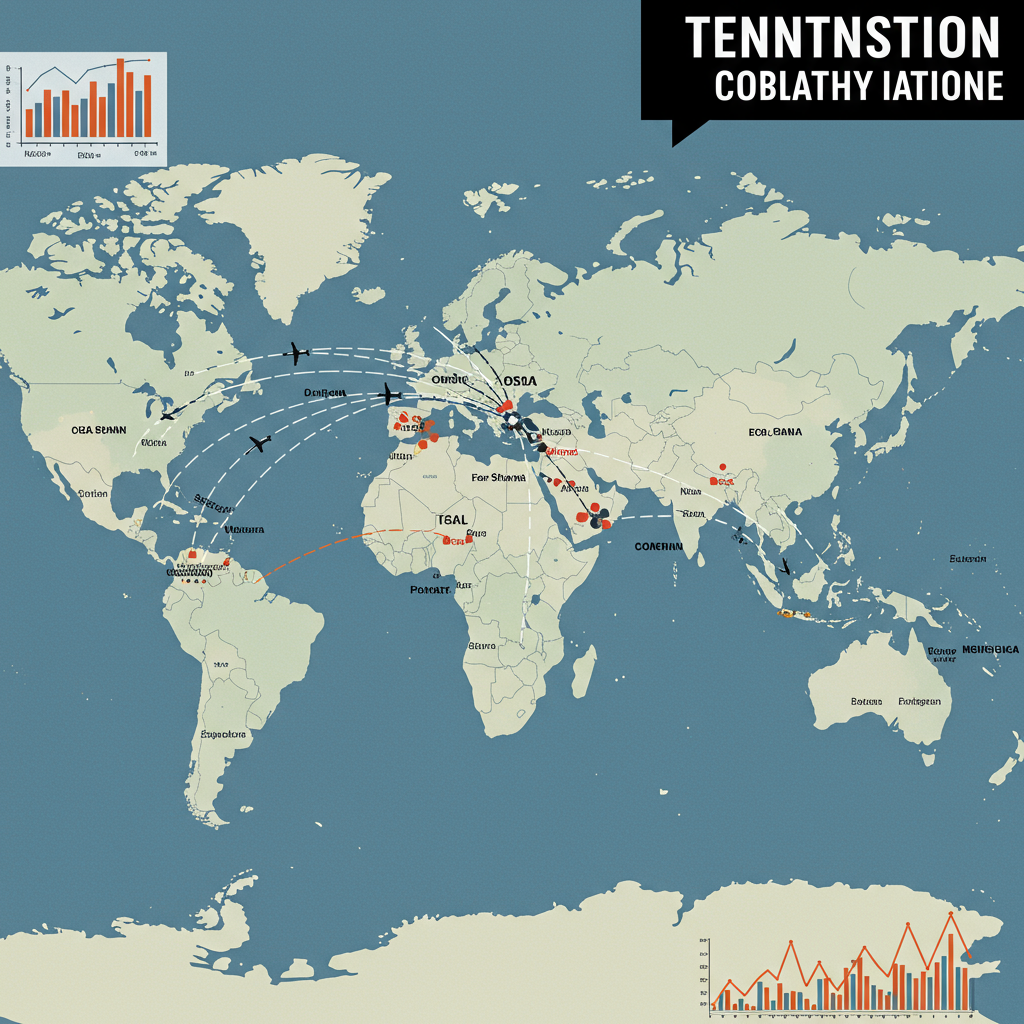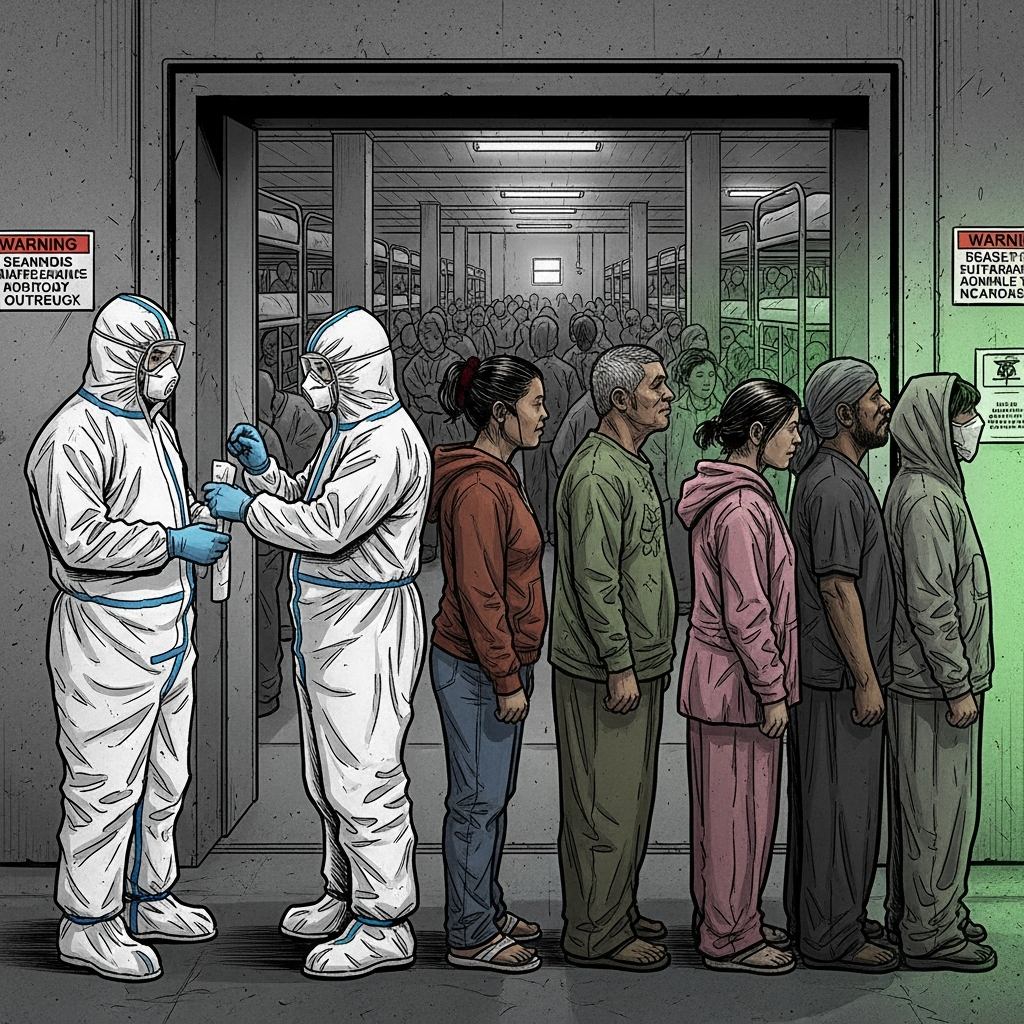The situation in the Middle East remains highly volatile and unpredictable, with escalating conflict carrying significant implications far beyond the region’s borders. Geopolitical tensions, particularly stemming from the intensifying confrontation between Israel and Iran, are sending shockwaves across global security, international travel, and the world economy.
Understanding these potential impacts is crucial for governments, businesses, and individuals alike, especially given the risk of further escalation with little warning.
Geopolitical Fallout and the Risk of Wider Conflict
The decades-old animosity between Israel and Iran, fueled by ideological differences and competing regional ambitions, has tragically moved from a “shadow war” fought through proxies to direct military exchanges. The June 2025 escalation, marked by specific Israeli operations and Iranian retaliation, brought the risk of a broader regional, or even global, conflict into sharp focus.
Major global powers are deeply involved, though with diverging stances. The United States remains a staunch ally of Israel, providing military and diplomatic support, including recent direct strikes on Iranian nuclear facilities. US leadership has warned of further action, significantly raising the stakes and risking a “disastrous war.”
In contrast, powers like China and Russia have voiced grave alarm, condemning the US actions as violations of international law and urging immediate de-escalation, particularly from Israel. China views instability in the Middle East as a direct threat to global peace and has attempted to position itself as a mediator, though experts note its close ties with Iran and past criticisms of Israel may limit its effectiveness. These differing stances contribute to a complex international landscape and hinder diplomatic efforts to contain the crisis.
Heightened Global Security Concerns
Escalation in the Middle East conflict inherently increases security risks worldwide. Beyond the immediate conflict zones, there is a palpable danger of reprisal attacks and the conflict spilling over into other regions.
This heightened tension can fuel protests and civil unrest globally. More critically, it significantly raises the risk of terrorist attacks. Potential targets include:
Areas frequented by foreign tourists
Embassies and consular offices
Other foreign interests
Individuals are advised to remain vigilant, especially in public places and around mass gatherings, and to report any suspicious activity to local authorities.
Navigating Global Travel Turmoil
The conflict has already had a dramatic and disruptive impact on international travel, creating what some industry experts describe as “travel turmoil” and potentially causing “full-blown havoc” for global aviation.
A primary consequence is the closure and designation of airspace over conflict zones as high-risk. Airspaces over Israel, Iran, Iraq, and Syria have faced outright closure or severe restrictions due to active military operations, including missile activity and advanced air defense systems. Neighboring countries like Lebanon and Jordan are also deemed high-risk dueably to proximity.
These restrictions force significant rerouting of long-haul flights, particularly those connecting Europe and the UK to destinations in Asia, India, Australia, and New Zealand. Flights are being pushed into narrow, congested corridors, leading to:
Longer flight times
Increased delays and cancellations
Higher fuel costs for airlines
Immense pressure on air traffic control systems
Major airports like Tel Aviv’s Ben Gurion have faced closure, and numerous airlines have suspended routes to affected countries. Even if your final destination is outside the Middle East, your travel plans can be significantly impacted by these global network disruptions. Travelers heading to or through the region also face the risk of being unable to leave if the security situation deteriorates rapidly, with flights potentially changing or stopping at short notice and ground routes closing.
Travelers should be aware that cancellation rights often depend on official government travel advisories (like a “Do Not Travel” Level 4 designation) versus a general “disinclination to travel” due to perceived risk. Checking travel insurance policies for coverage related to conflict or advisory level changes is highly recommended.
Economic Repercussions
The economic consequences of an escalating Middle East conflict are equally concerning, with potential impacts on global markets and supply chains.
A critical vulnerability is the Strait of Hormuz, a narrow waterway through which approximately 20-25% of the world’s oil trade passes. Any disruption or blockage here could trigger a severe shock to global energy markets. Immediate challenges are already being seen, including navigation jamming in the Persian Gulf, adding risk for shipping.
This uncertainty and risk have directly translated into rising costs. Oil prices have increased, and the cost of chartering large oil tankers through the Strait of Hormuz has more than doubled in the wake of recent escalations.
Beyond energy and shipping, global financial markets react strongly to the instability. Stock markets have shown volatility, while traditional safe-haven assets like gold and the US dollar have seen price increases as investors seek stability. A wider conflict risks driving global inflation and exacerbating economic challenges worldwide.
Staying Safe: Advice for Travelers
Given the fluid situation and potential global impacts, travelers should exercise increased caution and stay informed.
Before You Travel:
Confirm Flights: Contact your airline directly to check the status of your flights, even if your destination is not in the Middle East.
Review Insurance: Understand your travel insurance policy, particularly regarding coverage for flight cancellations, delays, or changes due to conflict or increased travel advice levels.
Research Your Destination: Thoroughly research the current situation in your planned destination and any transit points.
Check Travel Advisories: Read the latest official travel advice for your destination country. Understand the meaning of different advice levels and what they imply for your safety.
Subscribe for Updates: Sign up for free travel advice updates from your government’s foreign affairs department.
Assess Your Safety: Based on current affairs and official advice, decide if you feel safe traveling to your planned destination at this time.
While You’re Travelling:
Stay Alert: Be highly aware of your surroundings, particularly in public places, at transport hubs, and during mass gatherings.
Report Suspicious Activity: If you see anything unusual or concerning, report it to the local police or authorities.
Monitor News: Keep up-to-date with local and international news regarding security developments or potential threats.
Heed Warnings: Take all official warnings and instructions from local authorities seriously.
Follow Instructions: Comply with directives from local law enforcement and emergency services.
The conflict in the Middle East is a stark reminder of how interconnected global security, travel, and economies truly are. Staying informed and exercising caution are essential steps for navigating this period of heightened uncertainty.




